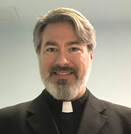 Dear Sisters and Brothers in Christ, Daily we receive more news of the spread of the COVID19 virus (Coronavirus). In the midst of an already difficult flu season, this news surely raises anxiety and concern. Our role as Christians is to help alleviate fear and anxiety with wisdom and understanding. I want to commend a few basic practices to us all: The most important way to minimize the spread of infectious diseases is for people who have symptoms (fever, upset stomach, frequent coughing or sneezing, etc.), to stay home. This includes clergy. Clergy or lay ministers can bring the sacraments to those who cannot attend a service and can provide pastoral care by phone as appropriate. Frequent handwashing is another important way to minimize spread. Plenty of soap and paper towels will be provided in restrooms and kitchens, and containers of hand sanitizer will be readily available in the pews, near doors, and beside tissue boxes to be used when handwashing is not possible. Additionally, below are a few liturgical suggestions to help minimize the spread of infectious diseases: Receiving the sacrament in one kind (bread only, for example) has ancient precedent in our spiritual life. The Church believes that those who receive only the bread (or wine) have fully received the sacrament. Theologically, the blood is inherent in the body, and vice versa. If there are concerns about the use of the common cup, the bread may be distributed by Eucharistic ministers who have cleansed their hands. Because hands are a common source of infection, Intinction (dipping the host into the cup, instead of drinking directly from the cup) by the communicant is not a sanitary substitute for drinking from the chalice. Peer-reviewed studies and Centers for Disease Control guidance since the 1980s have consistently shown that “the risk for infectious disease transmission by a common communion cup is very low, and appropriate safeguards--that is, wiping the interior and exterior rim between communicants, use of care to rotate the cloth during use, and use of a clean cloth for each service--would further diminish this risk.” -- American Journal of Infection Control (Vol. 26, No. 5, 1998). During the Peace, I am inviting worshipers to greet one another with a bow, or a smile, or some other similar gesture, acknowledging each other while avoiding physical contact. Following the service, the receiving line should include conversation but omit physical contact. During Coffee Hour (or other times of fellowship), food may be served by individuals who have washed their hands, put on serving gloves, or are using tongs to minimize the touching of food. Either paper plates and napkins or a dishwasher with a water temperature setting hot enough to kill germs should be used for cleanup. Our partners at Episcopal Relief & Development have put together important resources to help congregations prepare for and respond to a potential outbreak. You can view those and other resources on our diocesan website at https://www.edusc.org/blog/covid/. For the latest information from the Centers for Disease Control (CDC), I invite you to visit their dedicated COVID-19 page: https://www.cdc.gov/coronavirus/2019-ncov/index.html. Please keep those who are ill with infectious diseases, their families and caregivers, and our medical care providers in your prayers. The Episcopal Church, and indeed the Church universal, has a strong history of caring for one another -- and for our communities -- in times of illness and health. My prayer is that we, with God’s help, will continue this tradition together. (Content adapted from The Rt. Rev. W. Andrew Waldo, bishop of the Episcopal Diocese of Upper South Carolina.) Comments are closed.
|
Click here for the latest parish newsletter:
Categories
All
|